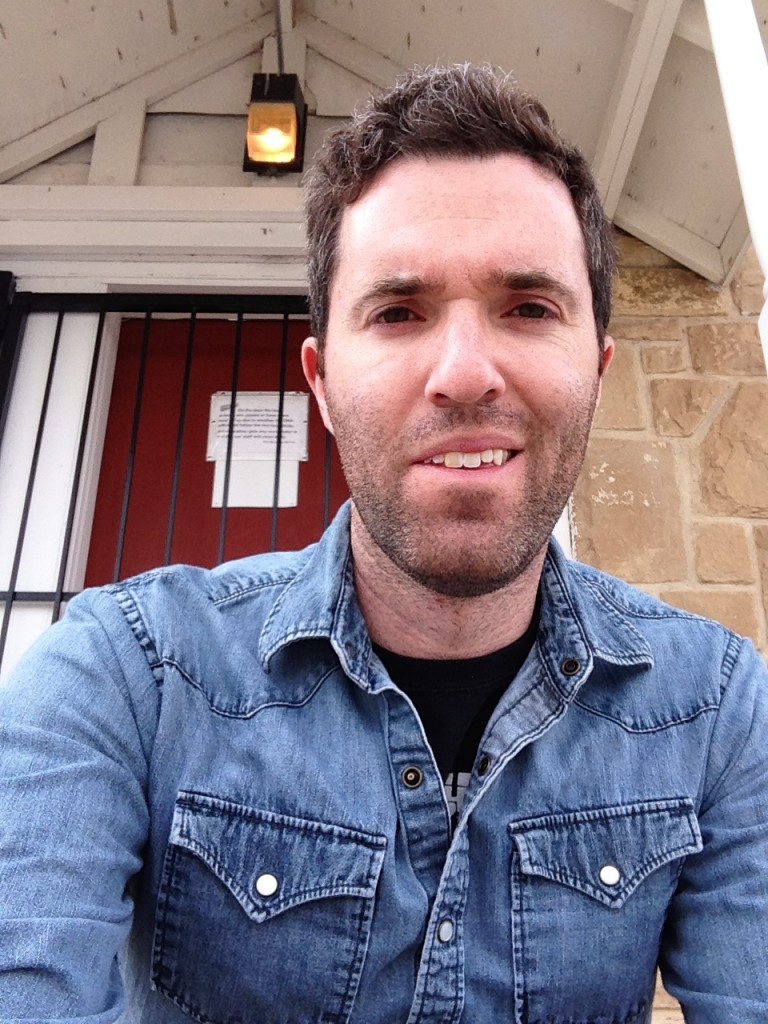Contributor Spotlight: Joseph Horton
 Joseph Horton’s story “Mitosis” appears in Midwestern Gothic Issue 18, out now.
Joseph Horton’s story “Mitosis” appears in Midwestern Gothic Issue 18, out now.
What’s your connection to the Midwest, and how has the region influenced your writing?
I’ve lived in Ann Arbor for almost six years. My mom grew up in Michigan, and I’ve come back, reverse-migration, so much of my time here feels like rediscovering the family’s past. I’d like to think everywhere I’ve lived inspires and challenges my writing.
What do you think is the most compelling aspect of the Midwest?
Most compelling to me about the Midwest is that it is constantly surprising. I was in Minneapolis recently, and I was stunned–what a beautiful and impressive city. It wasn’t winter, and that helped, but I was so impressed, particularly because I didn’t know what to expect. Many people have a squirrely or nonexistent read of the Midwest, so there’s opportunity here to be surprised, to build your own experience of a place rather than having it fed to you. I’ve lived in Los Angeles, DC, and London too, and they are incredible, but I had also seen them too many times before in movies, in books, on TV. I had to balance my experience with the impressions that had been given to me. It’s too simple and shitty to say that the Midwest lives “under the radar,” but I do love visiting, say, America’s largest indoor waterpark in Ohio and having absolutely no idea what to expect. (I would never have imagined so many back tattoos of corporate logos and children’s feet.)
How do your experiences or memories of specific places—such as where you grew up, or a place you’ve visited that you can’t get out of your head—play a role in your writing?
Everything I write starts with place, whether I want it to or not. The novel I’m working on–Deep Rez–is set on a reservation in New Mexico, and when I go back and visit, it feels like I’m touring a famous place. My mind is there so often, I’ve made it famous for myself. There are ghosts, alive and dead, everywhere. My best writing uses, changes, and then replaces memory. The story becomes what happened.
Discuss your writing process—inspirations, ideal environments, how you deal with writer’s block.
I would never talk about my writing process, but I read this question aloud in front of my partner and my friends and this is what they said:
“You rock back and forth in your chair, mumbling to yourself, listening to one song over and over on repeat.”
“You keep drafts of your stories in the freezer.”
“One time you burned a copy of a journal that rejected you on the grill.”
How can you tell when a piece of writing is finished?
A piece is finished when the deadline hits.
Who is your favorite author (fiction writer or poet), and what draws you to their work?
Louise Erdrich is my favorite writer.
What’s next for you?
I’m directing the English Department writing program at the University of Michigan this summer, so I better not ruin everything. I’m finishing this novel, Deep Rez, because it’s starting to outlive some of the people who helped create it.
Where can we find more information about you?
Twitter: @joebhorton






